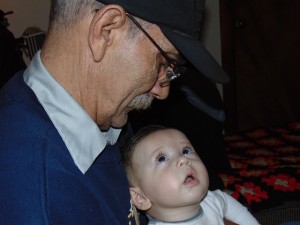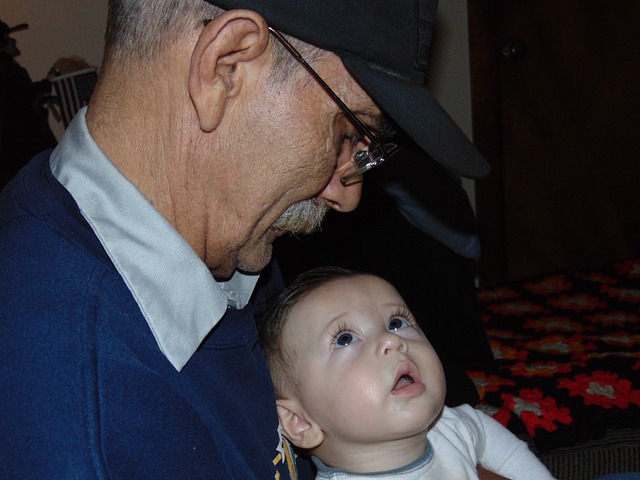 What do you value in life? What shining virtues stand above time and progress? What personal qualities do you want your children and grandchildren to carry into future generations?
What do you value in life? What shining virtues stand above time and progress? What personal qualities do you want your children and grandchildren to carry into future generations?
Maybe you’ve given these kind of questions a lot of thought, or maybe not. But you should, because you can have a powerful influence on your grandchildren. This is your chance to make a difference in the next generation, to leave behind something of lasting value for those you love. This can be one of your grandest roles as a granddad.
Teach Them
Grandfathers have a special window into a child’s heart. When a dad relates to his children, there is often a struggle for control going on under the surface. He’s the man in charge, the disciplinarian, and it’s hard for a child to set aside that authoritative image.
But if you can get the child alone, away from her parent’s expectations, often she can relax. She’ll listen better and ask more thoughtful questions, like: “Grandpa, when Daddy was seven, was he like me?” “Did he have to clean up his plate?” Or maybe, “Why did Aunt Julie get divorced?”
She’s trying to learn about her world, including school, family, and relationships in general. With you, she may be more open to learn, and you can help shape her young mind.
Usually, you can’t plan these opportunities-they just happen. That’s why it’s good to spend lots of unstructured time with your grandchildren. You may teach something without even realizing it: something happens, you take an action, answer a question or explain something, and the child learns something new.
Listen to your grandchild. This is important because you can never do enough cultivating your grandchild’s trust. Attentive listening communicates that you are interested in him, you consider him worthwhile as a person, and his ideas are worth your time and attention.
Also, when your teaching is guided by careful listening, there’s a much greater likelihood that what you’re teaching will be “on target” for him.
Tell Stories. You have lots of wisdom and life experience to draw from; you’ve seen a wide variety of events and changes. Even your mistakes have a positive purpose. Children can sense that you have knowledge about many different topics, and they’re eager to hear about it.
Many of your stories from life have valuable lessons attached to them. Your grandchildren will learn about perseverance, loyalty, hard work, patience, sacrifice, and on and on. If you were impressed and inspired by a particular president or other leader in history, tell your grandkids about that person and what about him appealed to you.
This isn’t to suggest that you preach at your grandchildren or subject them to lengthy lectures. Just tell your stories in a lively, engaging way, and let the story do the teaching. Ask lots of questions to get your grandkids thinking about the values involved in your stories: “Why do you suppose my father turned down that opportunity?” “What do you think you would have done?”
Model Them
Are your actions backing up the qualities you’d like to see in your grandchildren? Do you miss the days when a man’s word was his bond? What agreements or promises have you made to your grandchild, and how can you show her that it’s important to keep them? It’s one thing to talk about our values; it can be much more difficult to demonstrate them.
If you believe in a strong sense of family, make that clear by your words and actions. Is it important to you that the grandkids know their cousins, aunts and uncles? Extended family gatherings can be great learning and grounding times for a child. They get to watch other married couples interacting; they see and hear how different generations relate positively to one another.
What other values do you want your grandkids to pick up from you? A love for books? A positive attitude? A determination to never quit in the face of adversity? Compassion and service toward others? The ability to take care of one’s possessions?
You may be able to make a list pretty easily, but are you modeling those characteristics? How well do you take care of the old Buick or the lawn mower? How much time do you spend reading books that will improve you? How often do you stop to help someone who is in need? How do you handle it when someone treats you unfairly?
Children are natural observers, and they can learn powerful, lasting lessons from watching a grandfather go through life with dignity, selflessness and a childlike sense of wonder.

